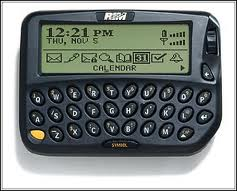
Research In Motion board member Roger Martin offered the Globe and Mail a passionate, though rather odd, defense of of RIM’s actions in the long decline that led up to the departure of co-CEOs Mike Lazaridis and Jim Balsille. In the course of defending for ignoring advice he described “go bankrupt and fire our founders and bring in a moron,” Martin, dean of the University of Toronto business school, may have inadvertently put his finger on the real problem.
“People were saying we can’t make powerful phones like Apple,” Martin told the Globe and Mail. “Yes, we can, but we couldn’t believe consumers would put up with that kind of battery inefficiency and that kind of network inefficiency.”
Mike Lazaridis is an engineer to his very core. I met with him many times over the years and he would always bring the newest BlackBerry, often a product weeks or months away from release. He was always proudest of two features: its battery life and the way it kept network traffic–initially just email and later web data–to a minimum.
In the beginning, these were huge virtues for the BlackBerry. RIM had its origins in the paging business, where long battery life and minimal data use were paramount. The original BlackBerry 850 not only looked like a pager, it ran on the very low-bandwidth DataTAC paging network and probably used less data during its lifetime than an iPhone consumes in a few minutes.
As the BlackBerry evolved into a smartphone, Lazaridis’ obsession with battery life served it well. Its early competitors the Handspring (later Palm) Treo and Windows Mobile Phones had problems in both departments. At one time, the BlackBerry proxied browser ran rings around the competition in loading pages.
The problem is that as networks got much faster, BlackBerry’s data stinginess became more of a burden than an advantage. It’s easy to forget, but the iPhone was the first smartphone to offer anything resembling a PC browsing experience, and it didn’t really get good until the introduction of the iPhone 3G in 2008. But from then on, the BlackBerry was lost. People wanted full-featured web pages, they wanted them fast, and they didn’t care much about the data consumption, especially when they were doing a lot of their browsing on fast, unlimited Wi-Fi networks.
BlackBerrys still crush the competition on battery life, often able to go through a couple days of hard use without recharging. The difficulty is that the competition has gotten good enough. The demand is for a phone that will get you through a day’s use before you need to recharge. More is nice, but it doesn’t sell hardware.
I think it is likely that the BlackBerry engineering team, led by Lazaridis, fell in love with the wrong metrics. They were still concentrating on battery life and data consumption as the world became concerned with performance and app availability. Too much of a good thing can, indeed, be very bad for you.


